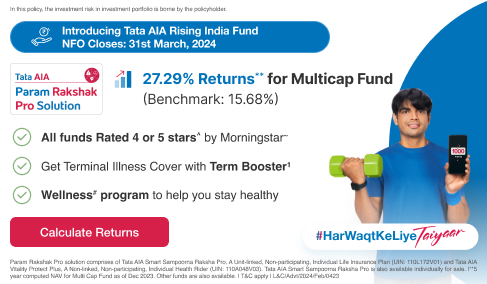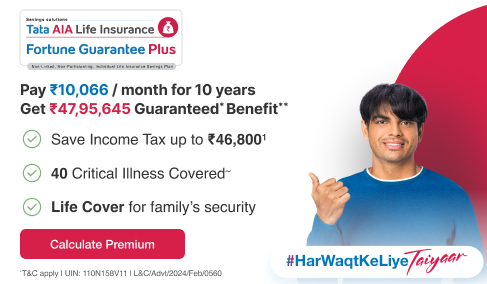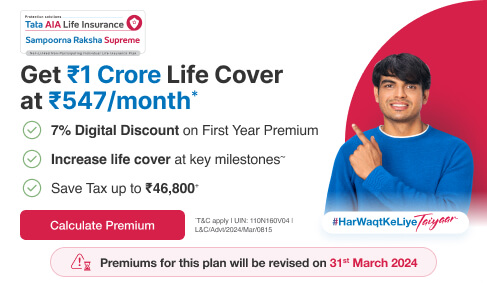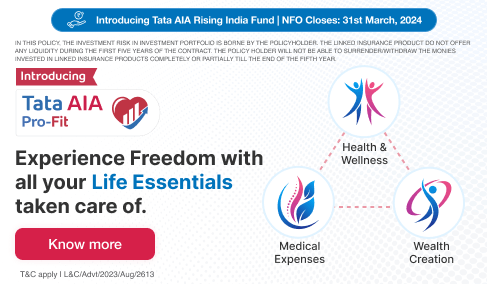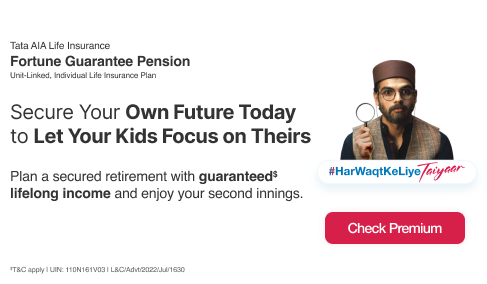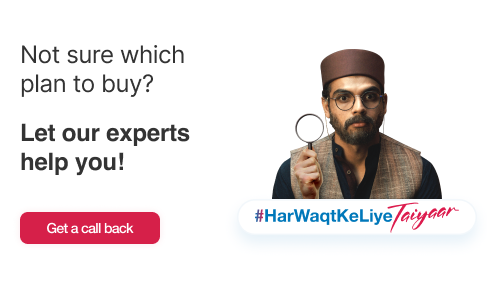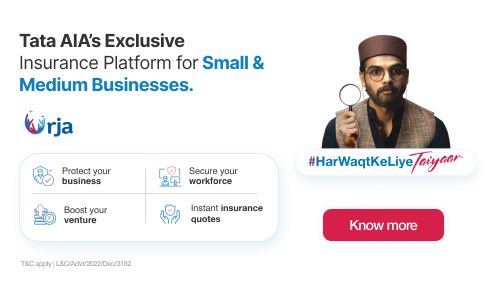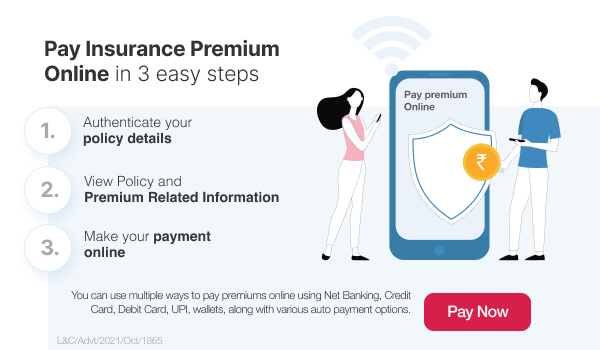HRA (House Rent Allowance) is one of the most important allowances offered to salaried individuals which is present in a salary slip. If you are a salaried individual and live in a rented house, you can claim the HRA to lower your tax* liability, either partially or wholly. The allowance is offered for expenses you incur related to rented accommodation. Your landlord, in this case, can also be your parents. However, if you do not live in your own house, the HRA is fully taxable.
If you want to claim HRA exemption, you can do so at the time of filing your income tax returns. You can do this only if the employer does not claim HRA benefit on your behalf.
Here is a detailed guide on how to claim HRA exemption when you file tax returns:
Who can claim HRA Exemption?
Salaried individuals who receive house rent allowance as a part of their salary can claim HRA exemption, provided they make a payment towards the rent of the place they live in. HRA exemption reduces the taxable salary wholly or partially.
The HRA amount is seen in the tax projection statement given by the employer at the start of a financial year. The employer deducts the HRA from your salary. When you file your ITR (Income Tax Returns), you can see the deduction in Part B of Form 16 generated by your employer. If you do not file your HRA claim when filing your ITR, you can file a revised return before the end of the assessment year.
Eligibility criteria to claim HRA Exemption
You can claim HRA exemption only if:
You are a salaried employee
You have an HRA component in your salary structure
You live in a rented house
If your employer does not provide you with HRA, you can still claim for deduction under Section 80GG of the Indian Income Tax Act if you pay rent for any residential accommodation occupied by you. However, to get this exemption, you have to fulfil specific conditions, such as:
You are self-employed or salaried.
You have not received an HRA deduction at all in the financial year for which you are claiming an 80GG exemption.
You, your spouse, your minor child or HUF (where you are a member) do not own residential property at the place where you currently live or carry your business or employment.
If you own residential property at a place other than the place mentioned above, you cannot claim the benefit of that accommodation as self-occupied. In this case, the other accommodation would be considered to be let out for you to claim the 80GG deduction.
What is the available HRA Exemption Limit?
The HRA exemption limit is the minimum of:
Actual HRA received
50% of the basic salary, including dearness allowance, for those living in metro cities and 40% for non-metro residents.
Actual house rent paid less 10% of the basic salary including dearness allowance
If you are applying for claim deduction under Section 80GG, the least of the following will be considered as the limit for HRA exemption in ITR:
style="color: rgb(0,115,187); font-weight: bold;"
Rs. 5,000 per month
25% of adjusted total income
Actual house rent paid minus 10% of adjusted total income (total income less long-term capital gains, short-term capital gains and income under Section 115A or 115D and 80C to 80U deductions.
How to claim HRA exemption when you File Tax Returns?
Insurance premiums are exempt from taxes under Section 80C of the Income Tax Act, 1961. Moreover, any benefit received under the savings insurance policy is also free from taxes under Section 10(10D).
Generally, your employer will request you to submit your house rent receipts in the last quarter of the financial year to allow for HRA exemption in Form 16 generated by the employer. However, if you do not submit your rent receipts to the employer, the employer will deduct TDS (Tax Deducted at Source) without accommodating the HRA present in your salary slip. Even in this situation, you can claim HRA exemption in ITR. You will need to calculate the exempt HRA sum manually.
If rent receipts are submitted to the employer:
If you submit your home rent receipts to the employer along with other supporting documents, the employer will consider the case and reduce the tax withholding consequently. Your exemption will show in Form 16 and your tax return. Filing for HRA through your employer is hassle-free and convenient.
However, as per HRA tax exemption rules, if your annual house rent is more than Rs. 1 Lakh, you will need to submit details of your landlord’s PAN card to your employer to claim the HRA exemption.
Moreover, since your Form 16 and ITR-1 form is synced, it has become even more convenient to file for HRA tax exemption because the amount gets automatically pre-filled in the ITR form when you make your claim online.
If rent receipts are not submitted to the employer:
If you do not or could not submit your rent receipts to the employer, you can also claim HRA exemption in ITR. In this case, the employer would not have made the HRA exemption in the taxable salary and hence, deducted a higher TDS amount.
When you claim HRA deduction when filing your ITR, the excess TDS deduction which was done will be refunded to you. However, you must calculate the right HRA exemption amount and make the same claim deduction from the salary.
Illustrating the tax exemption on HRA
The example below illustrates the tax-exempt portion of HRA:
Suppose you live in Bangalore and pay a monthly rent of Rs. 15,000. You did not submit your rent receipts to the employer, and hence, you paid excess TDS. Your basic monthly salary is Rs. 70,000, which includes Rs. 20,000 as HRA. In this case, your HRA exemption limit will be calculated as:
Actual HRA received (Rs. 2.4 Lakh annually)
50% of basic salary (Rs 3 Lakh)
Surplus rent paid yearly over 10% of the basic salary (Rs 1.2 Lakh)
The available HRA exemption is Rs. 1.2 Lakh, whereas the remaining Rs. 1.2 Lakh is the taxable portion. Once you know the HRA claim amount, use the right ITR form and file for your ITR by following these steps:
Enter your salary in 'Salary as per provisions contained in section 17(1) ' in Form 16 - Part B
Enter the HRA calculated above under ‘Allowances exempt u/s 10' in the ITR 1 (select 10(13A) in the drop-down menu)
By following these HRA tax exemption rules, you can easily claim your HRA exemption when filing your ITR returns. Claiming for HRA exemption is a good way to reduce your taxable income in a year.
Alternatively, you can also take advantage of investments made in life insurance plans, such as savings insurance, term insurance, ULIPs, retirement annuity plans, etc.
Head over Tata AIA Life Insurance for your next savings investment plan!
L&C/Advt/2021/Jun/0987


 FOR EXISTING POLICY
FOR EXISTING POLICY
 FOR NEW POLICY
FOR NEW POLICY

